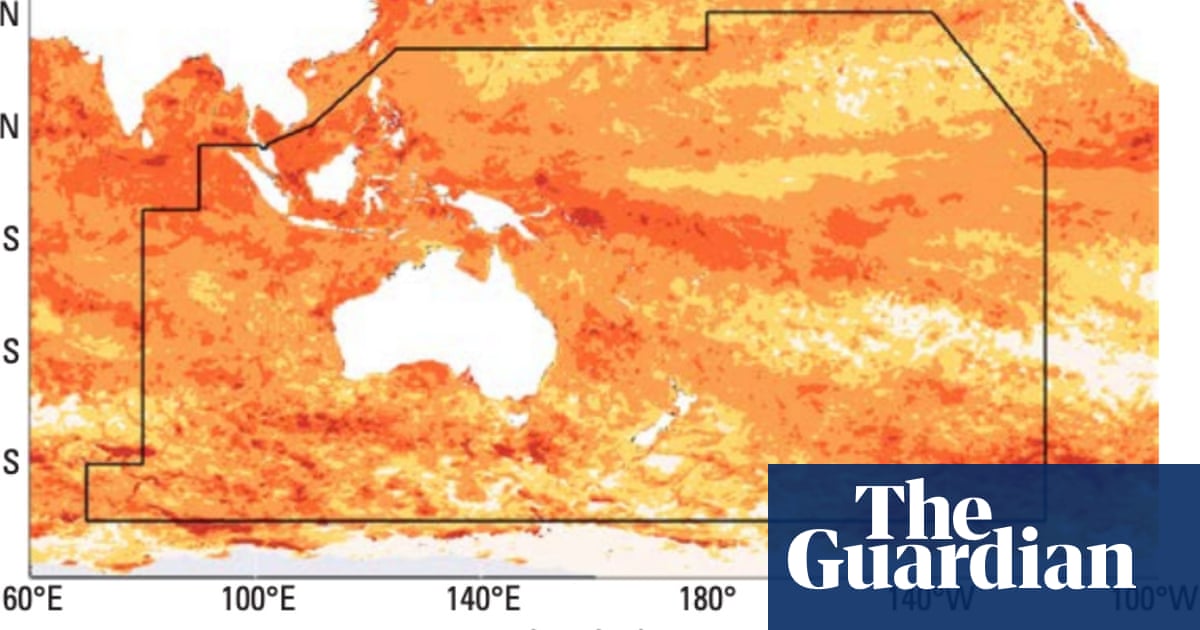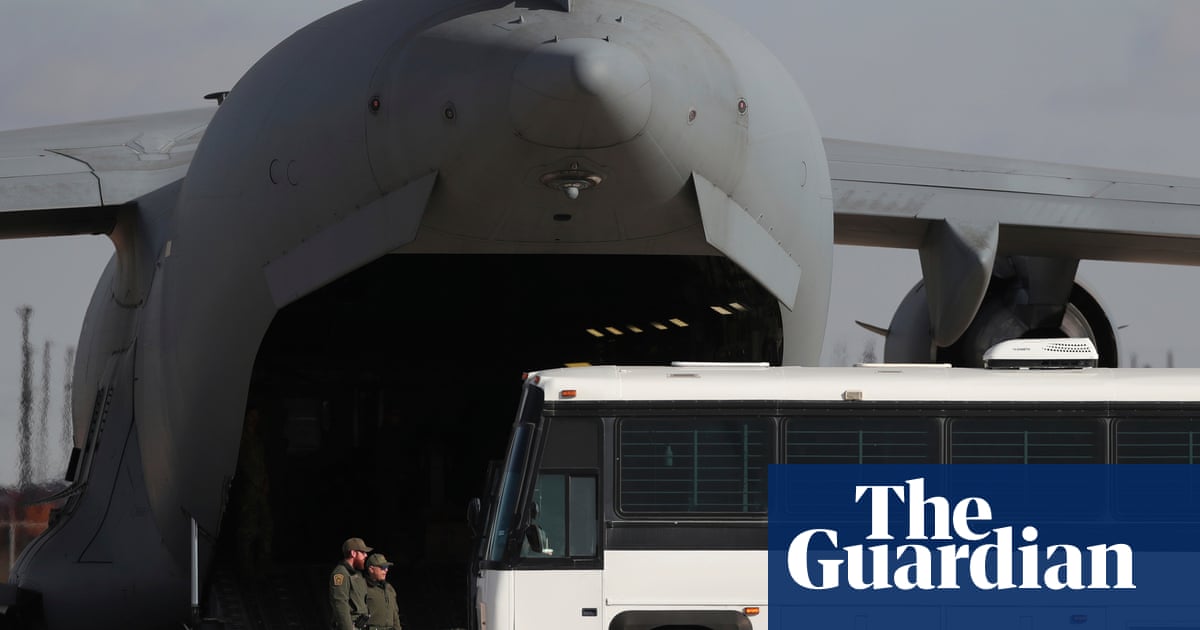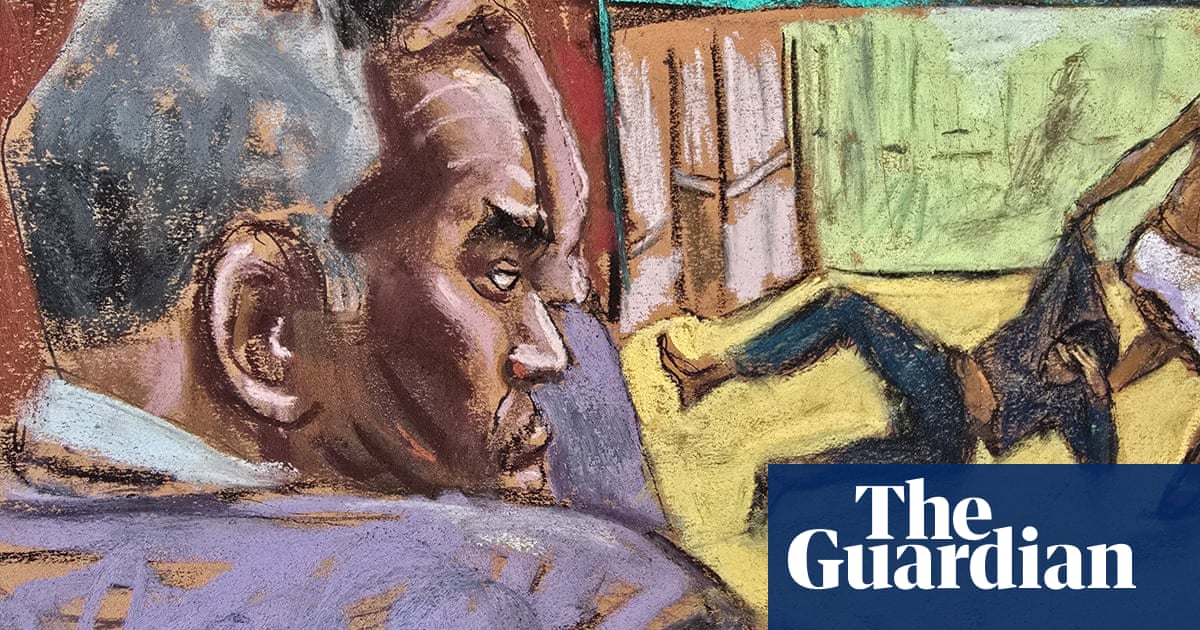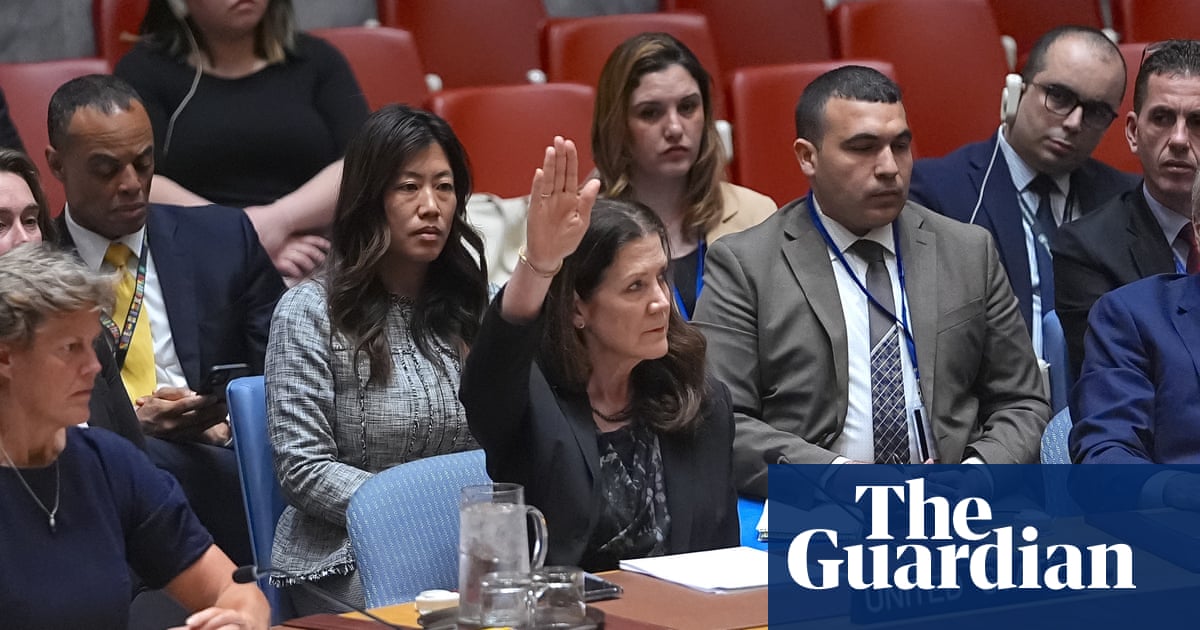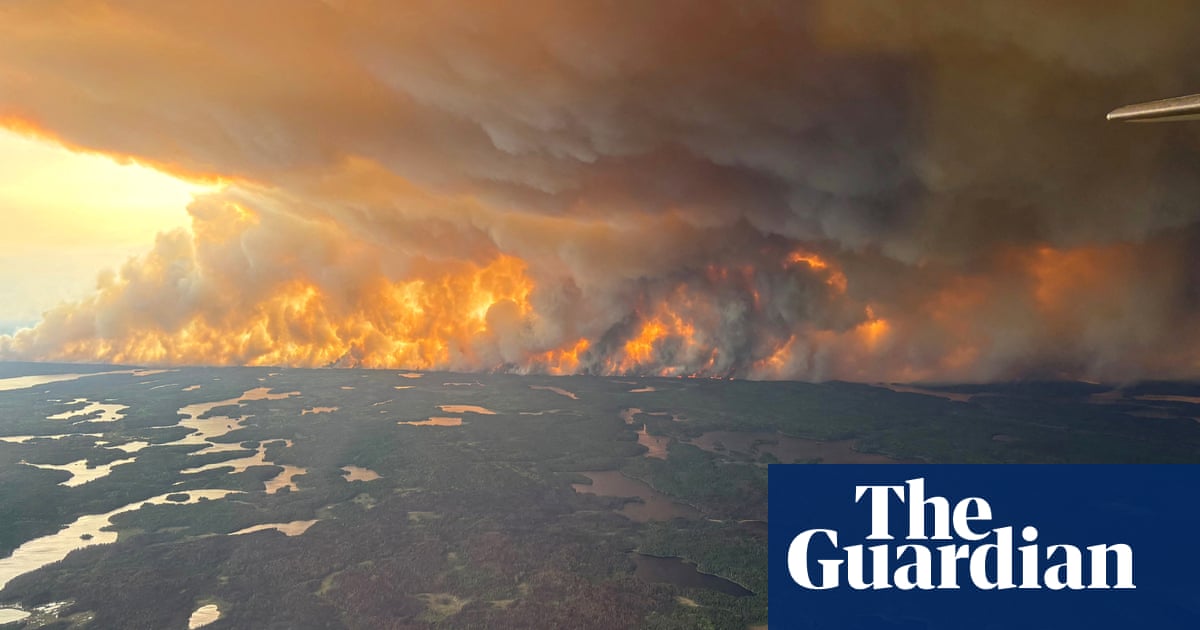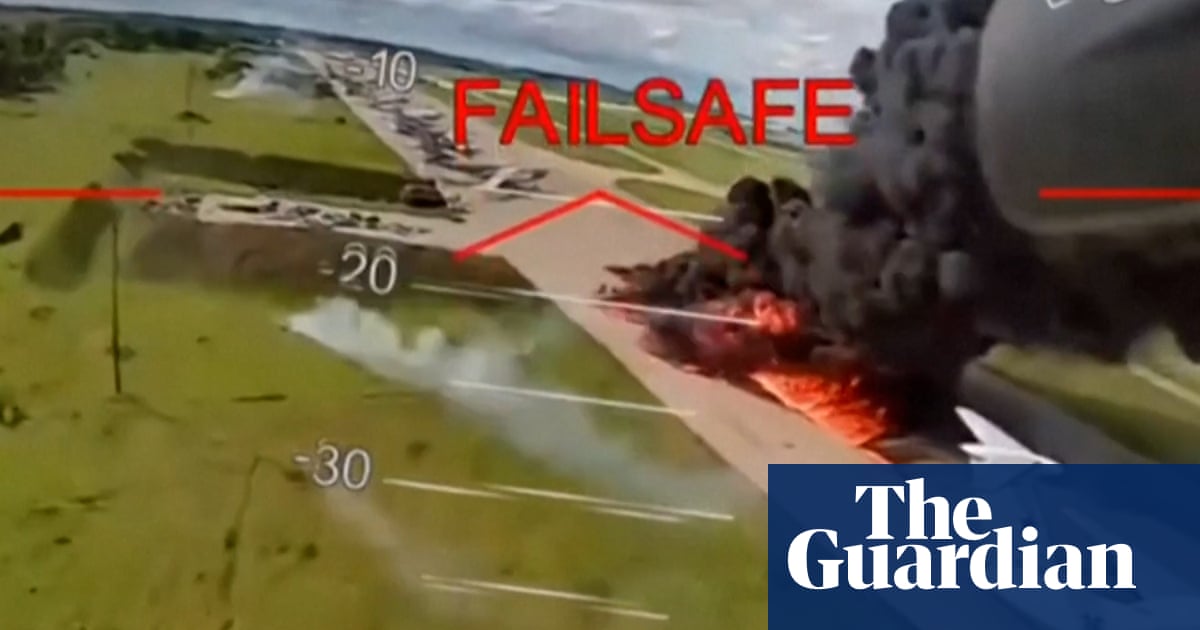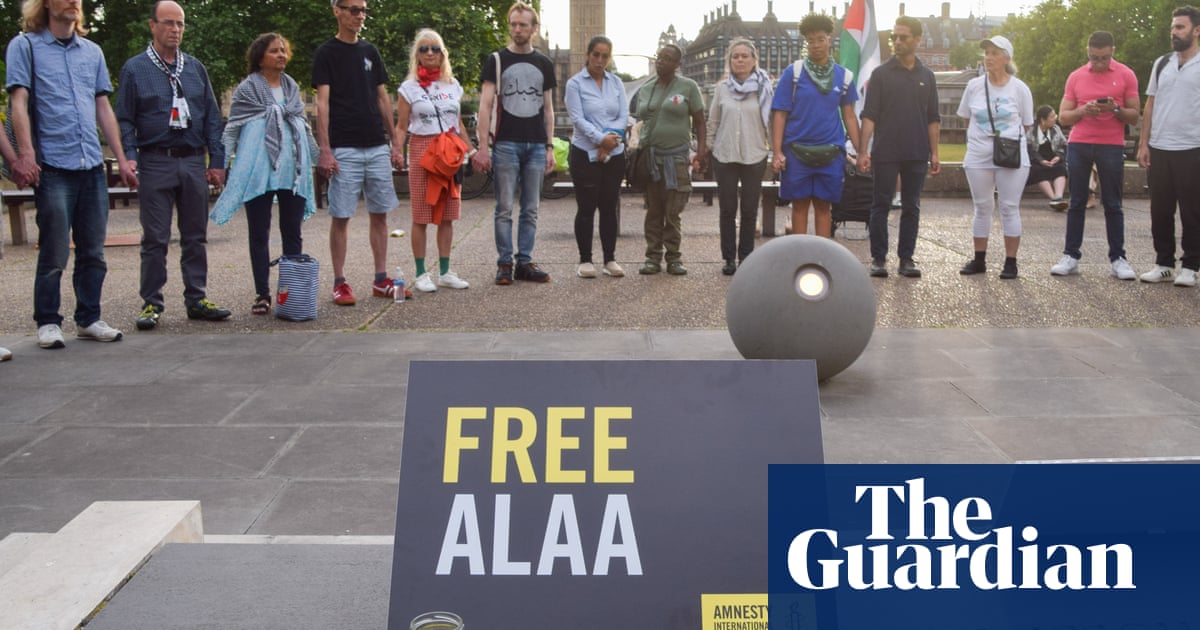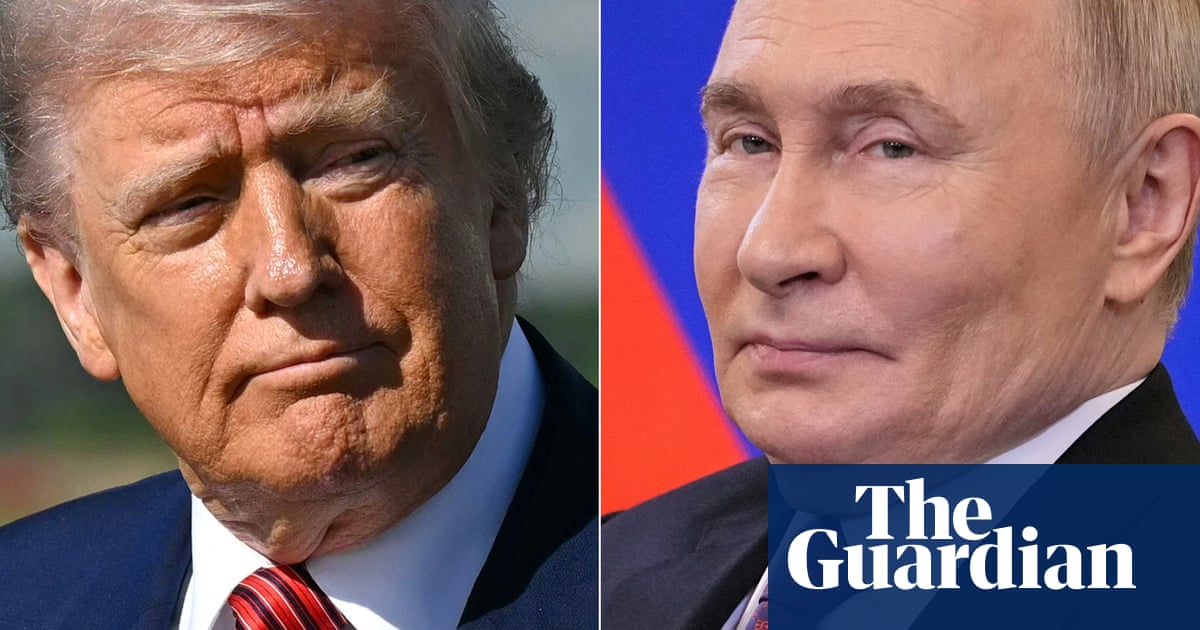-
Russian shelling killed at least five people on Monday in different frontline areas of eastern Ukraine, officials said. One death was in the city of Kramatorsk, where two others were injured; and two deaths were further south in the town of Illinivka where another three were injured. In the Kharkiv region, further to the north, prosecutors said two women were killed in a village south of Kupiansk, which has come under heavy Russian attack for months.
-
The whole part of the Zaporizhzhia region controlled by Russia lost power as a result of shelling by Ukrainian armed forces, Russia’s news agencies reported. High-voltage equipment was damaged, RIA reported, citing Yevgeny Balitsky, the head of the Russian-installed administration of the Zaporizhzhia region. The power outage did not affect the Zaporizhzhia nuclear power plant, Tass news agency reported, citing an official at the plant.
-
Volodymyr Zelenskyy said “no one cares whether Russia is angry” after 117 Ukrainian drones hidden on board trucks hit dozens of warplanes at Russian airfields. “Just a day earlier, Russia had launched a massive overnight attack on Ukraine, over 480 drones and missiles. There were casualties, people killed and injured. This happens every single day. So no, no one cares whether Russia is angry. What matters is that Russia must move toward ending this war,” he said. Ukraine carried out an audacious attack on Sunday, smuggling the drones into Russia in trucks and then firing them at airbases, damaging about 40 strategic bombers worth $7bn.
-
Zelenskyy said that “we really expect Trump to take strong steps”, urging the US president to toughen sanctions on Russia to “push” it to agree to a full ceasefire. Negotiations between Ukrainian and Russian delegations in Istanbul ended without agreement on a ceasefire on Monday. The two sides agreed to exchange 1,000 prisoners of war each, with the possibility of swapping an additional 200. The deal includes swapping all severely wounded soldiers and those under the age of 25, according to the negotiators.
-
An agreement had been made to return the remains of killed service personnel, but this would take careful preparation, said Ukrainian negotiators. Russia proposed a ceasefire of two or three days in some areas of the frontline to allow the Russian army to collect the many bodies it has left lying on the battlefield.
-
Ukrainian officials said the Russians rejected Kyiv’s call for an unconditional ceasefire of at least a month, instead handing over a proposal that would need to be studied by Kyiv. The Ukrainians suggested the talks should reconvene towards the end of June.
-
Russian state news agency RIA said the Russian document proposed two options for a ceasefire, one of which would require Ukraine to begin a complete withdrawal of its troops from four of its regions invaded by Russia – a maximalist and unrealistic demand considering Russia only partly controls those areas. RIA described the second option only as a “package” containing a number of unspecified conditions. The Ukrainians also gave the Russians a list of nearly 400 abducted Ukrainian children that Kyiv wants Moscow to return home. The Russian delegation agreed to work on returning only 10 of them.
-
Donald Trump is “open” to meeting his Russian and Ukrainian counterparts in Turkey, the White House said, after the two sides failed on Monday to make headway towards a ceasefire. Turkish president, Recep Tayyip Erdoğan, has proposed that Vladimir Putin, Volodymyr Zelenskyy and Trump meet this month in either Istanbul or Ankara. Putin has thus far refused such a meeting, while Zelenskyy has said he is willing. Trump, who wants a swift end to the three-year war, “is open to it if it comes to that, but he wants both of these leaders and both sides to come to the table together”, said White House spokeswoman Karoline Leavitt.
-
The Republican leader in the US Senate said it could begin work this month on stiffer sanctions against Russia and secondary sanctions on countries that trade with it. John Thune said he was discussing with the White House sanctions legislation including 500% tariffs on countries that buy Russian oil, gas, uranium and other exports. Trump has threatened the sanctions but shown little sign of moving forward, claiming he fears jeopardising peace talks. There has been no indication from the Republican leaders in the House of Representatives that they would allow the corresponding vote on the sanctions legislation that it would need, along with Trump’s signature, to go into effect.
-
Zelenskyy said on Monday that he agreed to a deal with Norway for gas supplies worth €1bn. Ukraine is likely to face a gas shortage this year due to Russia’s attacks on gas production facilities, the president said.

 2 days ago
14
2 days ago
14

